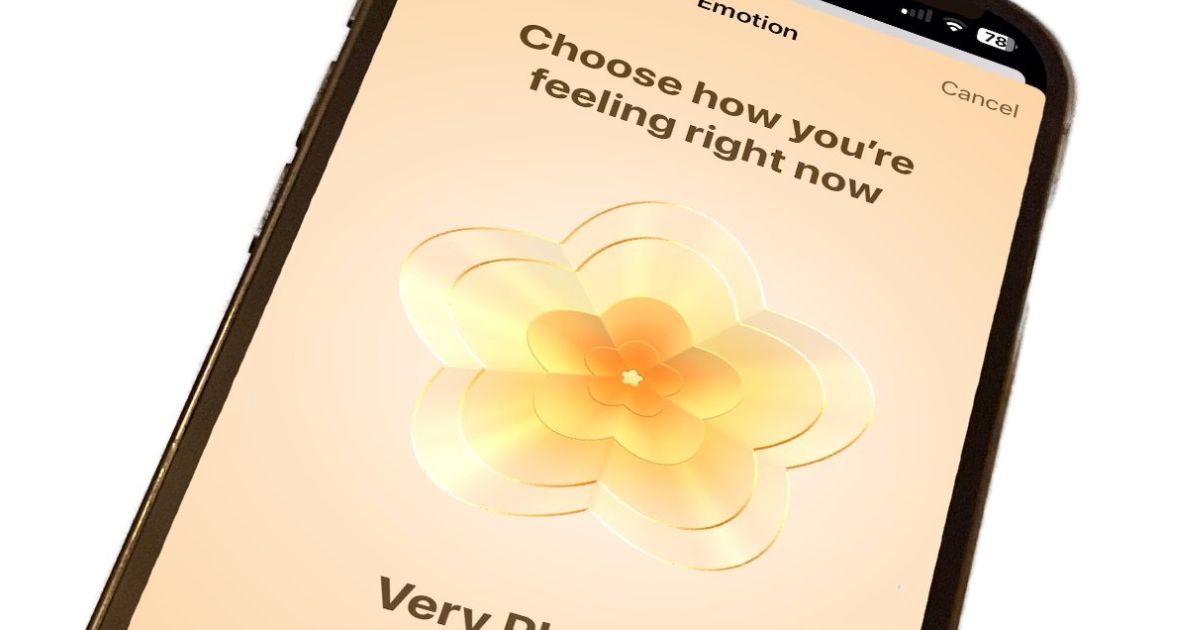Amidst the flurry of announcements and updates at WWDC 2023, one health-related revelation stood out—Apple’s Health app is now available on the iPad. However, a new mental health logging feature is introduced to encourage users to log their feelings and observe their impact on overall well-being.
This more discreet yet significant feature made its debut on both iPadOS 17 and iOS 17, garnering attention and applause from users.
Apple’s iOS 17 Introduces New Mental Health Logging
The concept behind this feature is elegantly simple: users are prompted to record succinct descriptions of their emotional states, either at the moment or as a general reflection of the day.
The ease of use and minimalistic approach make it a convenient activity that can be undertaken at any time when the thought arises.
The philosophy driving this mental health logging feature is rooted in the recognition that people often contemplate their emotions mainly during moments of distress.
To address this, iOS 17 offers the option for users to receive daily prompts, encouraging them to consistently engage with the feature, regardless of their current emotional state.
The new mental health logging feature acknowledges the importance of proactive mental health management.
With daily prompts, users are prompted to reflect on their feelings and experiences, fostering a greater understanding of their emotional journey. By normalizing emotional self-awareness, Apple aims to empower individuals to recognize patterns, triggers, and the interplay between their emotions and well-being.
Understanding the Mechanism:
Engaging with the mental health logging feature is as straightforward as it is impactful. Users can access it through the Health app, which provides a dedicated space for tracking various aspects of well-being.
Within the app, the mental health logging section allows users to input their emotional states using a few words or phrases. Whether it’s a fleeting emotion or a prevailing sentiment, the goal is to capture the essence of how the user feels.
Upon inputting this data, the app aggregates the information over time. The beauty lies in its simplicity; users do not need to provide an exhaustive analysis of their feelings. Instead, they offer a snapshot, a brief yet meaningful glimpse into their emotional landscape.
The Power of Consistency:
While the feature is accessible at any time, the option to receive daily prompts can be particularly impactful.
These prompts serve as gentle reminders to pause, reflect, and engage with one’s emotional well-being. By doing so consistently, users have the opportunity to track changes, fluctuations, and potential patterns in their emotions.
Furthermore, this practice encourages a positive habit of self-reflection. Instead of relegating emotional contemplation to moments of distress, users cultivate a routine of acknowledging and processing their feelings regularly.
Over time, this proactive approach can contribute to greater emotional intelligence and resilience.
Promoting Open Conversations:
Apple’s inclusion of the mental health logging feature aligns with the growing societal emphasis on mental health awareness and destigmatization.
By integrating this tool into its operating system, Apple facilitates open conversations about mental well-being. Users can engage with the feature on their own terms, fostering a sense of agency and control over their emotional experiences.
The implications of this feature extend beyond the individual user. It has the potential to spark conversations within families, friendships, and communities.
When individuals are encouraged to discuss their emotional journeys, it creates an environment where empathy, understanding, and support thrive.
As the tech industry continues to evolve, Apple’s approach to mental health logging reflects a commitment to holistic well-being.
By seamlessly integrating this feature into the iOS ecosystem, the company empowers users to prioritize their emotional health alongside their physical well-being. The era of digital connectedness is embracing a new dimension—one that champions self-care, self-awareness, and open dialogue about mental health.
In a world where technology often shapes our daily lives, iOS 17’s mental health logging feature stands as a reminder that technology can be a tool for positive change.
As users navigate the complexities of modern life, this unobtrusive yet impactful feature encourages them to pause, reflect, and take charge of their emotional well-being, one log at a time.

























